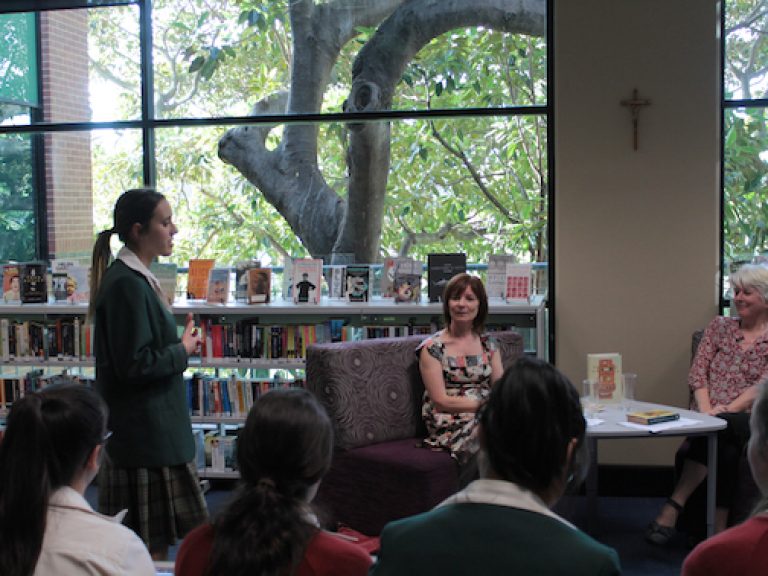Our visit from HSC author Drusilla Modjeska
To complement our study of the genre “Life Writing”, our Year 12 Extension 1 English cohort engaged in an interview-style session with two experts in the field. The session consisted of a conversation between Drusilla Modjeska, the author of our prescribed text The Orchard, and Dr Felicity Plunkett, poet, academic and former Chief Examiner of the Extension 1 course. The conversation later opened up to a Q&A segment, which proved to give insight into the process of composing a Life Writing text.
Much of our discussion was focused on the dilemmas that can arise when writers decide to document a life. We explored concerns such as the fallibility of memory, privacy and disclosure, and writer’s discretion. Modjeska’s response to this ethical minefield can be summed up in her comment that, alongside the enormous platform and power that writers have, comes a moral responsibility.
We also talked about the elusive nature of identity, more specifically the “I” in writing. In Modjeska’s collaborative work Secrets (1997, with Robert Dessaix and Amanda Lohrey), it is written: “‘I’ is a slippery creature, much given to ambiguity and prone to an almost chronic state of contingency.” This quote foregrounds the idea that identity is constructed, and can render itself differently depending on context. Modjeska then explained that, in The Orchard, the “I” is constructed as a surrogate, which paradoxically allowed her to play with multiple perspectives.
It was also quite interesting to learn the importance of the “I” in enabling the reader to equate their personal experiences with those of the writer. As Modjeska explained, the purpose of Life Writing should be to merge the particular and the general. In other words, the specific details of one’s life should catalyse the reader’s exploration of emotions that are central to the human condition. Sylvia Plath affirms this idea by saying that writing: “shouldn’t be a kind of shut-box and mirror looking, narcissistic experience.”
Further, we learnt about some of Modjeska’s compositional choices. What was most interesting to me was her decision to fictionalise people in her life in order to tell her own story. She justifies this “nudge towards fiction” by referencing Patrick White who says: “all the characters in my books are myself, but they are a kind of disguise.” From this it was clear that, although Life Writing is considered to be a non-fiction genre, texts that destabilise the truth can give equally insightful glimpses into the subject’s life.
Overall, the session gave us invaluable new insights into the Life Writing genre. It has opened up avenues for further exploration, and I am sure that the discussion will be continued in our classrooms. We would like to thank the English Department for organising this unique opportunity to hear from Drusilla Modjeska and Dr Plunkett. We definitely feel well-equipped as we embark on composing our own Life Writing pieces in the coming weeks.
Anna Carissa Burton
Year 12



